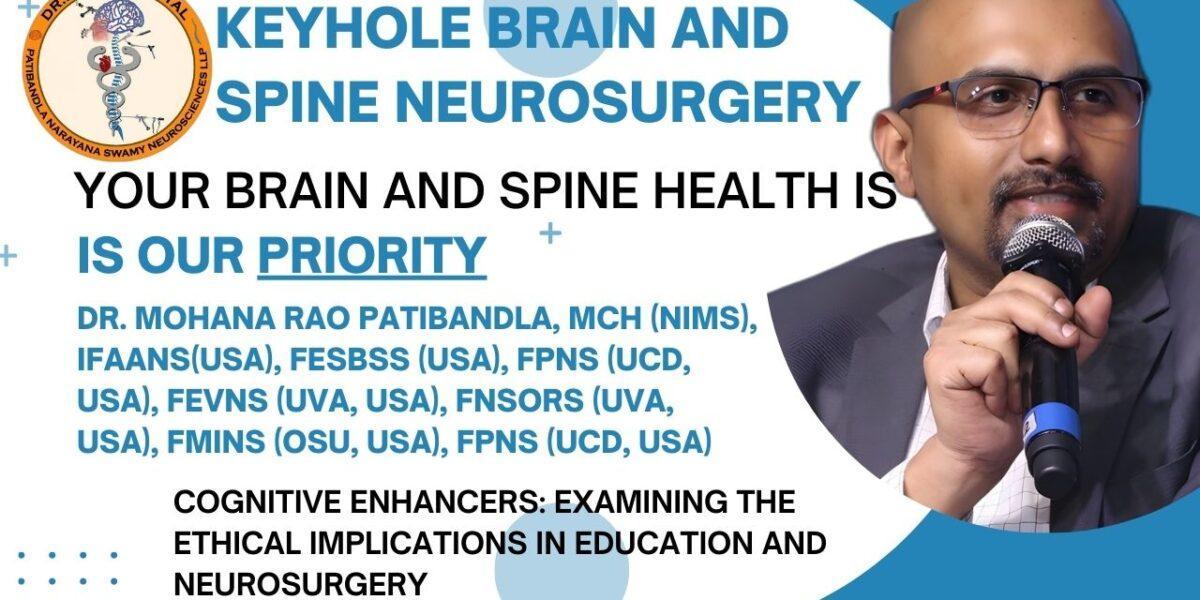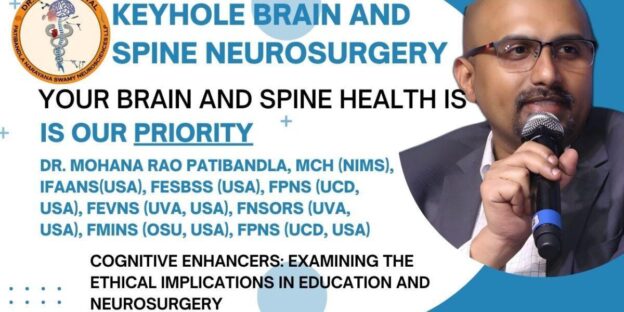Boost Your Brain Power by Dr. Rao – The Best neurosurgeon.
Cognitive Enhancers: Examining the Ethical Implications in Education and Neurosurgery
Summary: Join us on a captivating journey into the world of cognitive enhancers, where we explore their potential benefits and risks in education and neurosurgery. In this thought-provoking video, we delve into the impact of cognitive enhancers on academic performance and surgical skills, while addressing the ethical considerations surrounding their use.
Introduction:
Cognitive enhancers, known as “smart drugs” or “nootropics,” have garnered significant attention recently. These substances claim to boost cognitive function, memory, and focus, and their potential applications extend beyond education to fields like neurosurgery. In this blog, we will explore the controversial topic of cognitive enhancers, discussing their potential benefits, risks, and ethical considerations in education and neurosurgery.
What are Cognitive Enhancers?
Cognitive enhancers are drugs or supplements designed to enhance cognitive abilities, such as attention, memory, creativity, and learning. They may include prescription medications like Adderall or Ritalin and over-the-counter supplements like caffeine, ginkgo biloba, or omega-3 fatty acids. While some cognitive enhancers are FDA-approved for medical conditions like ADHD, others are used off-label for cognitive enhancement purposes.
Cognitive Enhancers in Education:
- Potential Benefits: Cognitive enhancers may offer short-term benefits in terms of improved focus and alertness, potentially enhancing academic performance in students.
- Risks: Misuse or overreliance on cognitive enhancers can lead to side effects like insomnia, anxiety, and increased heart rate. Long-term effects on brain development are still uncertain.
Cognitive Enhancers in Neurosurgery:
- Potential Benefits: In high-pressure situations during neurosurgery, cognitive enhancers may help surgeons maintain focus, accuracy, and decision-making abilities.
- Risks: Using cognitive enhancers in neurosurgery raises concerns about possible impairment of motor skills and judgment, posing risks to patients’ safety.
Ethical Considerations:
- Academic Integrity: Using cognitive enhancers in education raises questions about fairness, academic integrity, and whether it levels the playing field.
- Safety and Efficacy: Ethical concerns in neurosurgery involve ensuring patient safety and the potential impact of cognitive enhancers on surgical outcomes.
- Informed Consent: Patients and students should be fully informed about the risks and benefits of cognitive enhancers before use.
Dr. Rao’s Perspective:
As a renowned neurosurgeon at Dr. Rao’s Hospital, Dr. Rao acknowledges the potential benefits of cognitive enhancers in neurosurgery. However, he emphasizes the importance of rigorous research and ethical considerations before incorporating them into surgical practice.
Conclusion:
The use of cognitive enhancers remains a contentious topic, especially in education and neurosurgery. While they may offer short-term cognitive benefits, ethical concerns regarding fairness, safety, and informed consent must be carefully considered. Dr. Rao advocates for a balanced approach at Dr. Rao’s Hospital, encouraging further research to explore the true potential and ethical implications of cognitive enhancers in both realms.
Contact Information:
For more information, contact Dr. Rao’s Hospital at 9010056444 or visit drraoshospitals. Dr. Rao, a distinguished neurosurgeon, can address your queries and concerns.


